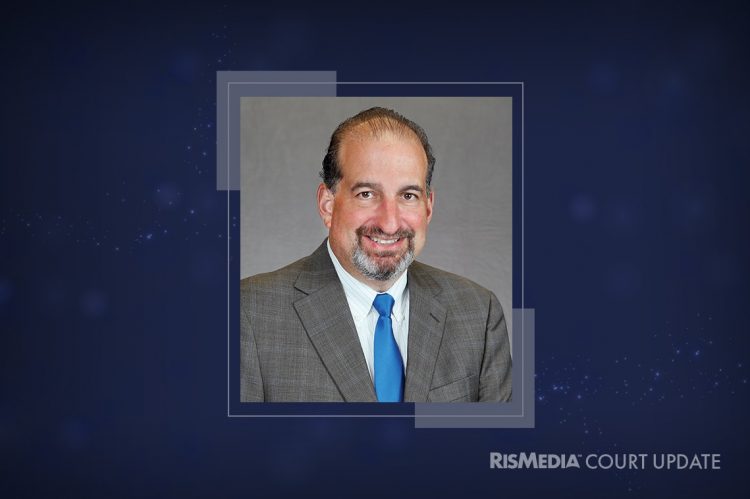Above: NAR CEO Bob Goldberg
KANSAS CITY—Yesterday, the defense in the potentially landmark Burnett trial began to lay out their case, following a week of blistering attacks by the plaintiffs alleging collusion, price fixing and conspiracy between the National Association of REALTORS® (NAR) and major corporate brokerages.
The trial, which began last week, is the culmination of a class-action filed by Missouri home sellers alleging that anticompetitive industry rules and practices inflated the commissions they paid to their REALTORS®.
The three named defendants—NAR, along with HomeServices of America and Keller Williams—are expected to have two weeks to make their respective cases. NAR opened yesterday, calling their first live witnesses to the stand (plaintiffs relied primarily on pre-recorded video depositions when presenting their case).
NAR CEO Bob Goldberg was among those who testified yesterday afternoon, and is expected back this morning for cross examination.
Yesterday’s testimony was all about the basics for the REALTOR® trade organization, which has emphasized in court and publicly that it does not set commissions and operates separately from local associations and the other named defendants.
Prior to Goldberg’s appearance, NAR’s lead counsel Ethan Glass brought Sharon Millett, an NAR past president and longtime member of the Presidential Advisory Group (PAG) to testify about policies the plaintiffs have alleged are anticompetitive, the use of internet searches for homebuyers, and the value of REALTORS® in general.
Just as Mike Ketchmark, lead counsel for the plaintiffs, let his clients tell their personal stories, Glass walked Millett through her background as a REALTOR®, starting out with her husband’s company in the late 1970s before starting her own brokerage.
Millett said she was inspired by other volunteers to join various NAR boards, serving on 10 or more different groups and committees.
Glass emphasized with Millett that agents—and buyer agents in particular—continue to have value, even as the internet and portals have opened up markets and listings directly to consumers. Millett outlined how a buyer agent’s role is “hugely different” from a seller’s agent, detailing how they work nights and weekends to help buyers “weed through listings,” connect them with a lender for pre-approval, and keep them from looking at properties they can’t afford. She also emphasized that buyer agents serve as the “source of the buyers” for home sellers, and that while seller agents and buyer agents have different goals, they work together to find common ground. Glass stressed that both buyers and sellers are free to work with a non-REALTOR® agent, or without an agent altogether.
Millett’s work with PAG, which happened during a key period when buyer subagency disappeared, also came into focus, as she claimed that the group was ahead of regulators in seeing problems with the practice.
Until the mid-1990s, buyers more often than not depended on sub-agents, who actually represented the seller while working with the buyer.
Millett said the rule change creating buyer compensation was meant to “protect” buyers and sellers, and Glass pointed out that NAR didn’t receive commissions paid to those buyer agents.
Glass also confirmed with Millett that none of the other defendants (HomeServices of America, Keller Williams, et al.) were involved “formally or informally” with these meetings, that there were no “secret meetings,” and that a “transparent process” was adhered to.
Last week, however, plaintiffs keyed in on the fact that a different, more recent NAR “advisory group”—the Real Estate Services advisory group—which includes executives from large national brokerages, banned note-taking and keeping minutes during their meetings. Ketchmark used this fact to paint a picture of alleged conspiracy and antitrust violation.
On cross examination of Millett, Ketchmark honed in on how commissions—particularly those paid to buyer agents—have remained static despite huge technological advances, particularly in online access to information.
He quoted Glass’ opening statement that claimed Millett would explain why the internet makes it “harder to buy homes.”
Millett responded by saying that buyers can become “frustrated” and “overwhelmed” by all the information available on the internet and, therefore, need an agent to help.
Ketchmark cited NAR research showing that buyers have mostly described the internet as helpful, and that the vast majority of buyers use it. He asked Millett pointedly whether the internet might not be making it harder for buyers, but instead harder for real estate companies to share commissions.
“I don’t agree,” said Millett.
Referring back to the PAG that Millett was a part of, Ketchmark pointed out that while NAR previously asserted that the group “did not focus on commissions at all,” there are mentions of the word “commission” in NAR’s “participation rule” and that the use of the term increased in other rules over the years.
Value and compliance
Next on the stand was Goldberg, who had already appeared by video deposition last week, when he was pressed by the plaintiffs on alleged antitrust behavior. This time, the focus was again on laying out the basics—what NAR does, and what it does not do, according to the defense.
For the most part, Goldberg’s testimony stayed firmly within the lines of these arguments—that while NAR is a trade association that works broadly across the industry, it has nothing to do with commissions.
Goldberg was allowed to speak at length about REALTOR® values—professionalism, increased trust from abiding by the Code of Ethics, and knowledge that goes “above and beyond” other licensed agents. He also cited research that has shown sellers make 20% more when using a REALTOR® compared to “doing it on their own.”
Goldberg also claimed that NAR is a separate entity from local boards and associations, which make their own decisions—something that will certainly be challenged and explored further by the plaintiffs, as the question of just how connected all the different players are has so far been a major issue as Ketchmark and team seek to prove a conspiracy.
Glass also let Goldberg opine on how NAR interacts with outside entities, from government agencies to mortgage bankers.
NAR is “an open book,” Goldberg said, while admitting that the organization does communicate with corporate brokerages like the other defendants, but only to discuss subjects like trends and mortgage-related issues, and to benefit from their shared “voices.”
He characterized the corporate brokers as “stakeholders in our business” who contributed in fights for better communities, and that there is “zero” discussions about commissions.
Goldberg also made another comment that will likely receive pushback from the plaintiffs, claiming that NAR is “not dependent” on commissions being set at any particular level.
Legal sources previously told RISMedia that motivation will be important in how both sides present their case. If Goldberg and the defense can convince the jury that NAR did not benefit from commissions at any particular level, that could prove a strong counter to allegations that the association helped fix commission rates.
Goldberg only briefly touched on the subject of commission negotiations, which was a key line of attack for the plaintiffs against HomeServices of America and Keller Williams. When asked by Glass if NAR “encourages” negotiations on commissions, Goldberg instead said there “shouldn’t be interference” from NAR on the subject, and negotiations were a matter for REALTORS® and their clients.
Critics of NAR have previously cited a guide the organization put out in 2017 that argues strongly against lowering commissions.
Glass concluded by focusing on NAR’s specific rules and guidance on antitrust behavior, which Goldberg claimed includes support regarding state and federal laws provided to local associations, as well as clearly stated rules in the organization’s own policies.
As a trade association, Goldberg acknowledged that NAR often will bring competitors together, but if the discussion starts to move toward price fixing, members need to change the subject or leave the meeting.
Glass asked Goldberg if NAR took its role in preventing antitrust behavior and price fixing seriously.
“To the utmost. That is paramount,” he answered.
Stay turned to RISMedia for more updates from the courtroom.
William Schmidt contributed to this reporting.













I really wish someone on the side of Realtors would bring up the fact that these sellers chose to work with a realtor. They had the option to do a FSBO. Not sure why there seems to be an issue with our proprietary program, ie MLS or why they’re assuming this should be open to the public. As realtors, we take classes, take an exam, carry a license, E&O, continuing Ed etc. it’s bad enough that NAR allowed fsbo’s to have access to our MLS but here we are. I’m also guessing when these sellers bought, they had a realtor. And how about the attorney for the plaintiffs, aren’t they receiving a percentage of the payout? How does eliminating buyers agents not violate consumer protection laws? How about the fact that it’s actually buyers paying the commission and not receiving any tax write offers etc. all these sellers could totally have sold their properties on their own. They knew how this worked since they all bought the houses they sold. This is all so infuriating.
Home sellers agree to the commission they are paying in order for the listing agent to market on the MLS to expand business to other agencies that send in offers to get the highest and best price and in a lot of cases it ins up into a bidding war which a lot of times they get more then the asking price.The seller also have a choice to market the property them self as a FSBO with out paying a commission they just need a attorney and a title company.